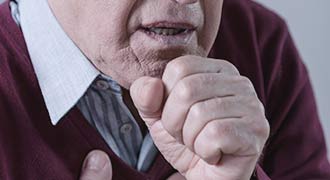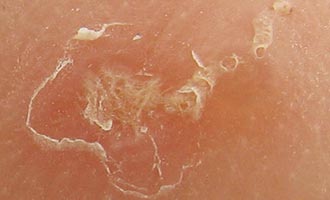If you or a loved one has contracted an infection in a nursing home, you may be entitled to compensation for medical bills, pain and suffering, wrongful death (in some cases) as well as other losses. Our firm is working with experienced nursing home infection lawyers in RI and MA, and there is no fee unless you get a settlement or award.

Has your Loved One Developed an Infection while in a Nursing Home?
Call d’Oliveira & Associates for a Free Case Evaluation!
Most Common Types of RI Nursing Home Infections:
- Sepsis
- Influenza
- Scabies
- MRSA
- Lung Diseases
- Skin & Soft Tissue Injuries
- Digestive and Urinary Tract infections
- Gangrene
- E Coli and Salmonella

What Can My RI Nursing Home Infection Case Be Worth?
If we can prove that the nursing home neglect was the cause of the infection, one can recover for medical bills and pain and suffering, among other losses. Read More.
Why are RI Nursing Homes Hot Beds For Infections?
It is very common for nursing home residents to be exposed to infectious diseases. Nursing homes tend to be an ideal environment for disease to spread because of how close residents live to one another. Most of their activities during the day are done in groups, and many of the staff at nursing homes are not educated to the same extent as hospital staffs. Residents with underlying conditions also increase the risk of injury from hospital-acquired infections.
What Infections are Most Common in RI Nursing Homes?
 Sepsis is a severe form of infection where the bloodstream becomes overwhelmed by bacteria – it is also commonly known as blood poisoning. Infections may typically begin in the kidneys, skin, lungs, and bowel. Sepsis infections vary from one person to another, but one of the most common causes is a bacterial infection originating in bedsores caused by nursing home neglect. When an elderly person’s immune system begins to wear down, the chance of developing sepsis increases significantly. Over 750,000 cases of sepsis are reported annually, of which 215,000 patients die each year despite receiving treatment. Some common symptoms of sepsis include rash, delirium, shaking, hyperventilation, fever, and chills.
Sepsis is a severe form of infection where the bloodstream becomes overwhelmed by bacteria – it is also commonly known as blood poisoning. Infections may typically begin in the kidneys, skin, lungs, and bowel. Sepsis infections vary from one person to another, but one of the most common causes is a bacterial infection originating in bedsores caused by nursing home neglect. When an elderly person’s immune system begins to wear down, the chance of developing sepsis increases significantly. Over 750,000 cases of sepsis are reported annually, of which 215,000 patients die each year despite receiving treatment. Some common symptoms of sepsis include rash, delirium, shaking, hyperventilation, fever, and chills.
Influenza is a very dangerous infection for nursing home residents. For most influenza strains, 90% of those who die each year from the flu are over age 65. At a typical nursing home, 60% of the residents will contract flu each season, and an average of 55% of those who contract the flu in a nursing home die from it. Even though they show a reduced immune response, the yearly influenza vaccine still works for the elderly.
 Scabies is an allergic reaction caused by exposure to skin mites known as Sarcoptes scabiei. These infections are usually a result of direct skin-to-skin contact and causes inflamed red and itchy patches of skin. In a nursing home environment where there may be many individuals with suppressed or weakened immune systems, there is a chance that the much more severe form known as Crusted Scabies can develop. This is a much more serious infection. Normal scabies infections usually involve 10-15 scabies mites, while crusted scabies may involve as many as 1,000,000 mites.
Scabies is an allergic reaction caused by exposure to skin mites known as Sarcoptes scabiei. These infections are usually a result of direct skin-to-skin contact and causes inflamed red and itchy patches of skin. In a nursing home environment where there may be many individuals with suppressed or weakened immune systems, there is a chance that the much more severe form known as Crusted Scabies can develop. This is a much more serious infection. Normal scabies infections usually involve 10-15 scabies mites, while crusted scabies may involve as many as 1,000,000 mites.
 MRSA is one of several kinds of bacteria related to the staph infection that has become resistant to several different kinds of antibiotics. MRSA infections often show up in hospitals, but are also common in nursing homes, with certain nursing homes having as many as 40% of their patients infected. Some risk factors that can contribute to MRSA infections include old age, underlying chronic disease, decreased mobility, mental impairment, open wounds, among others. MRSA infections commonly show no symptoms but can lead to blood or skin infections, pneumonia, endocarditis, and bone and joint infections.
MRSA is one of several kinds of bacteria related to the staph infection that has become resistant to several different kinds of antibiotics. MRSA infections often show up in hospitals, but are also common in nursing homes, with certain nursing homes having as many as 40% of their patients infected. Some risk factors that can contribute to MRSA infections include old age, underlying chronic disease, decreased mobility, mental impairment, open wounds, among others. MRSA infections commonly show no symptoms but can lead to blood or skin infections, pneumonia, endocarditis, and bone and joint infections.
How Can RI Nursing Homes Contain and Control Infectious Diseases?
 Hospitals have long had strict procedures for controlling and preventing infections. However, nursing homes often times have insufficient training in controlling and preventing infections in comparison to hospital staffs. Additionally, nursing homes also lack the specialized tools used to diagnose infections. In order to better prevent infection, nursing homes should regularly monitor patients for signs of infection, administer regular immunizations for flu and other chronic diseases, and separate infected patients in worst case scenarios. For more information on infections acquired in nursing homes, click here.
Hospitals have long had strict procedures for controlling and preventing infections. However, nursing homes often times have insufficient training in controlling and preventing infections in comparison to hospital staffs. Additionally, nursing homes also lack the specialized tools used to diagnose infections. In order to better prevent infection, nursing homes should regularly monitor patients for signs of infection, administer regular immunizations for flu and other chronic diseases, and separate infected patients in worst case scenarios. For more information on infections acquired in nursing homes, click here.
Call d’Oliveira & Associates Today!
 If you or a loved one has been exposed to and contracted an infectious disease at a nursing home, do not hesitate to contact a nursing home abuse lawyer to help you understand your legal rights. The nursing home infection lawyers in RI and MA that we work with are extremely experienced and will charge no legal fees until you receive the settlement or award you and your loved one are entitled to. Call us toll-free at 1-800-992-6878 or fill out a contact form online, for a free (no-obligation) case evaluation.
If you or a loved one has been exposed to and contracted an infectious disease at a nursing home, do not hesitate to contact a nursing home abuse lawyer to help you understand your legal rights. The nursing home infection lawyers in RI and MA that we work with are extremely experienced and will charge no legal fees until you receive the settlement or award you and your loved one are entitled to. Call us toll-free at 1-800-992-6878 or fill out a contact form online, for a free (no-obligation) case evaluation.
